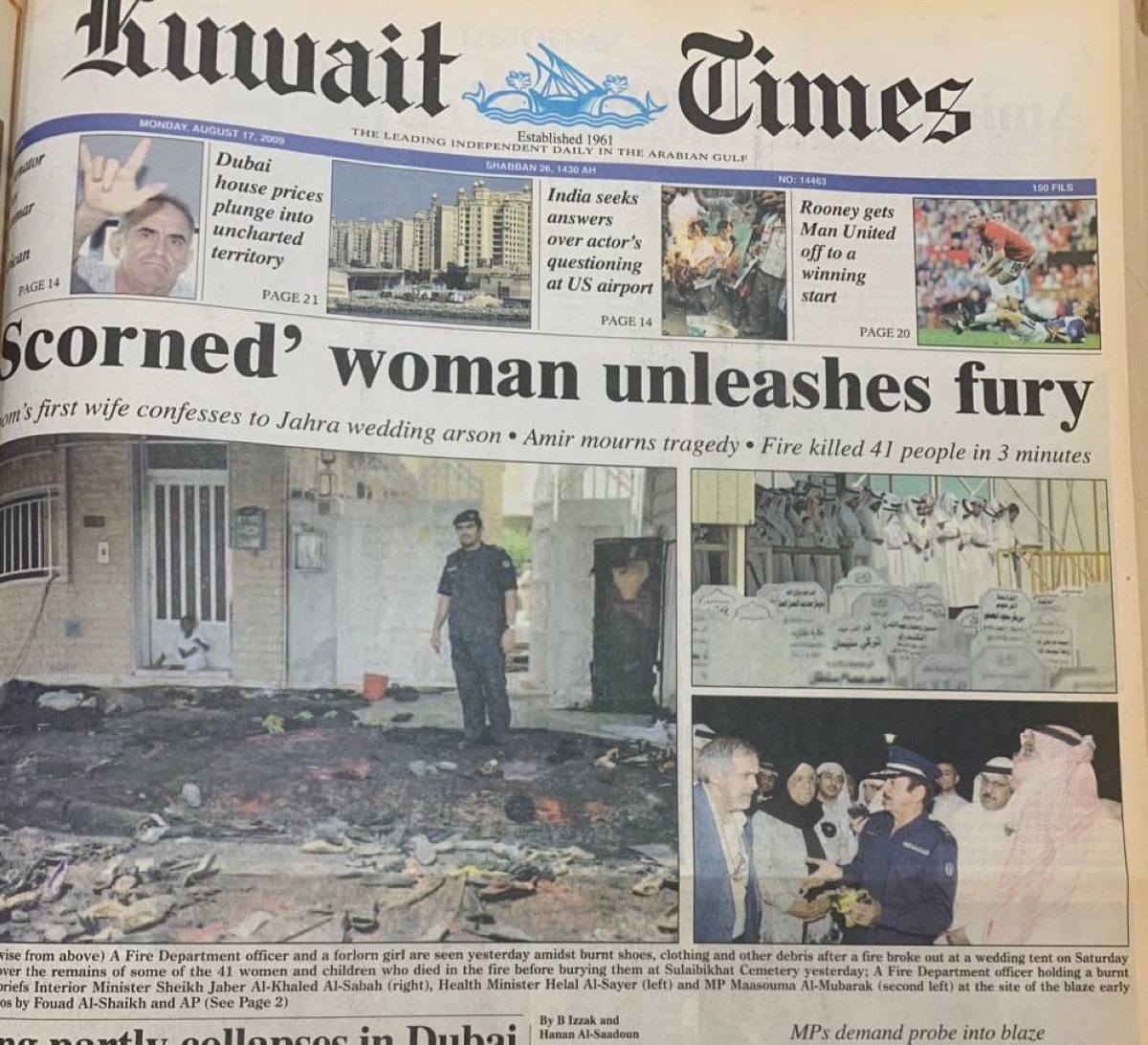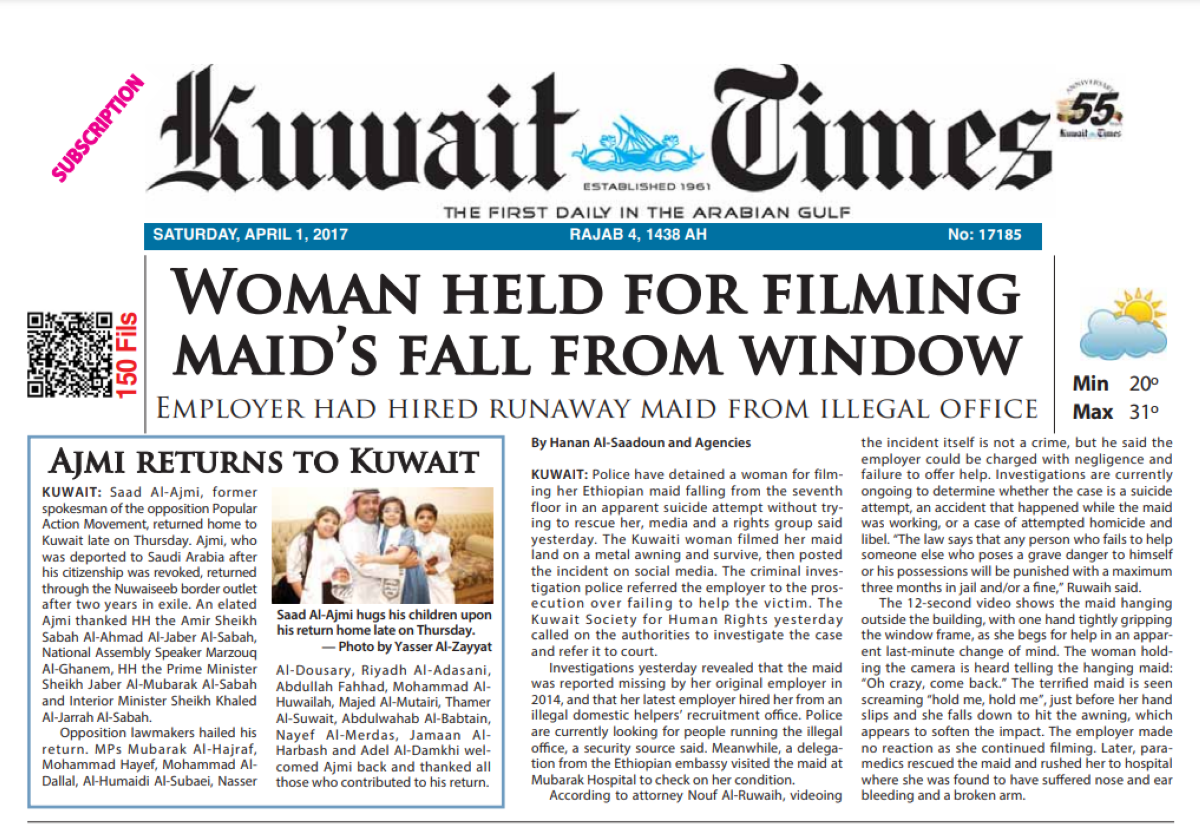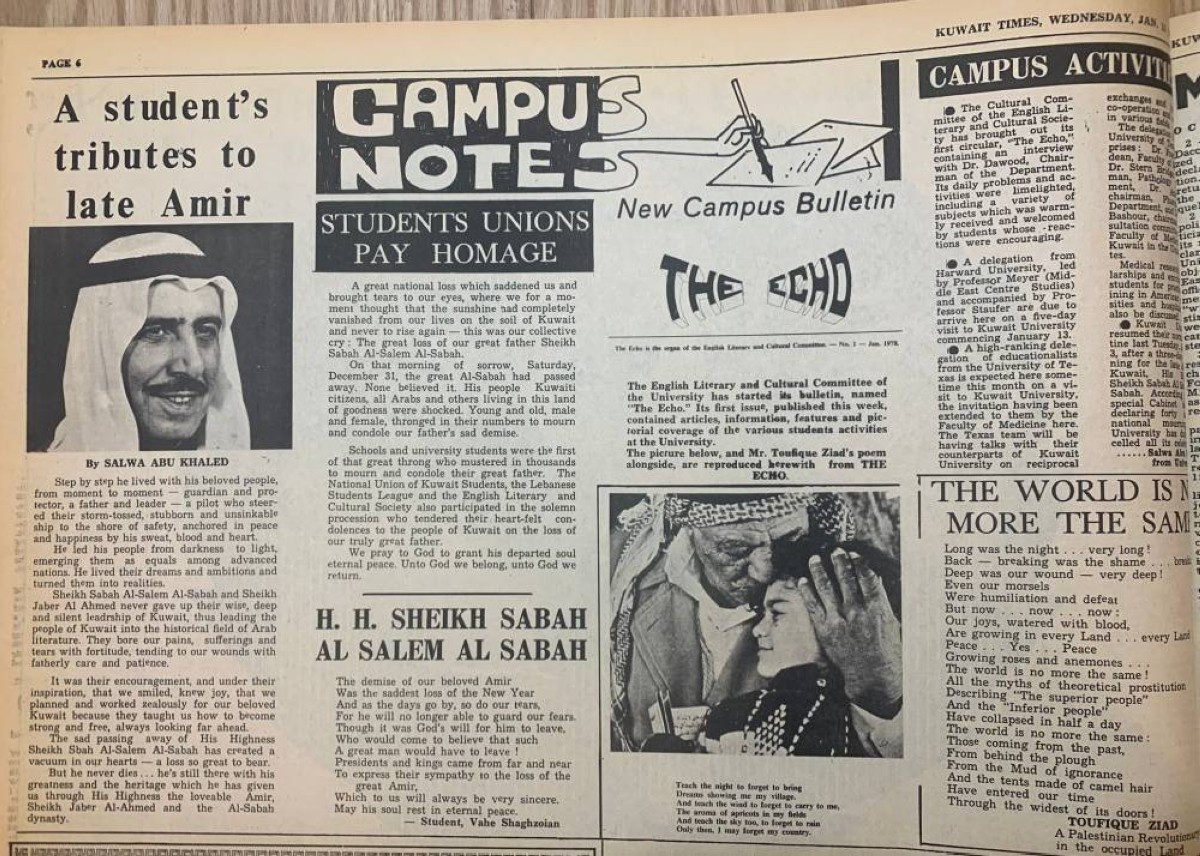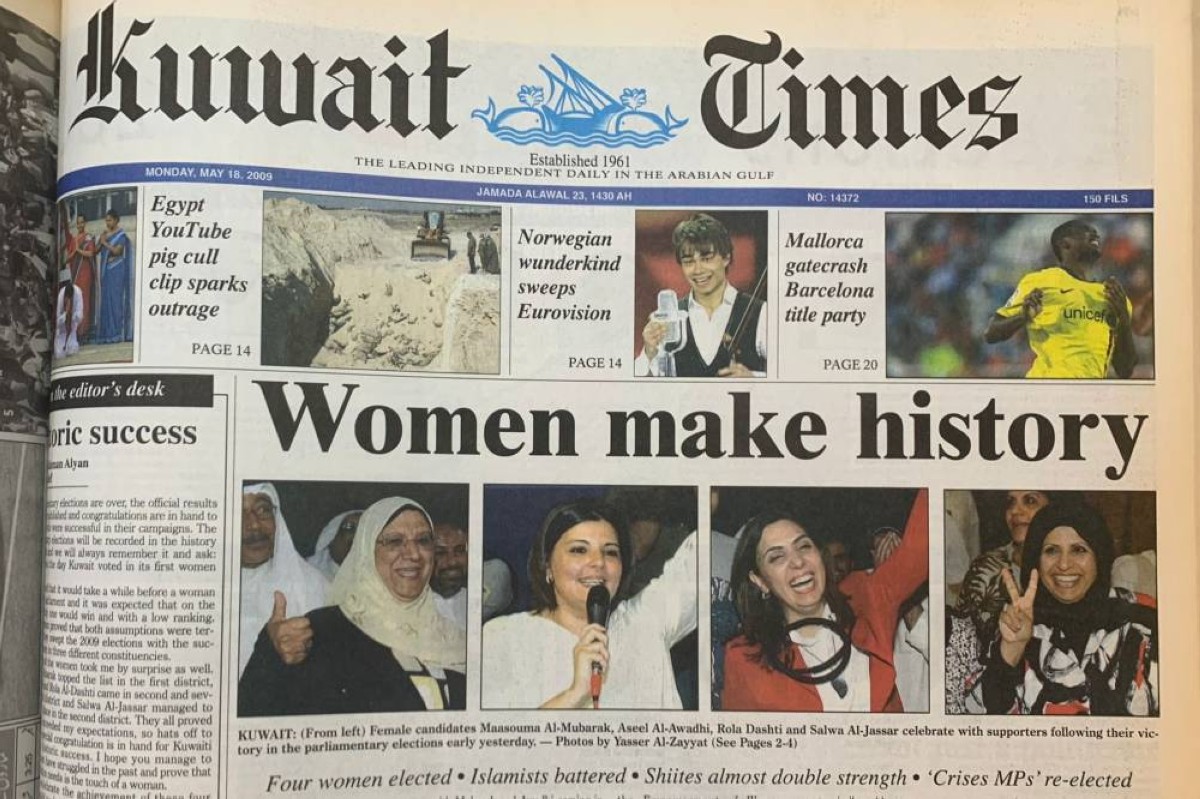For over 63 years, Kuwait Times has been the world’s window into Kuwait — through its happiest and darkest days. Being the oldest, all-inclusive English-language record of Kuwait’s history has positioned Kuwait Times, since its establishment, as a source of local updates and commentary for international news organizations. Kuwait Times staff and articles often served to inform international reports centered around Kuwait, from coverage of big milestones and devastating events to mundane non-news and orientalist columns. As we celebrate 63 years since our first edition, we look back at some of these moments.
Kuwait elects first women MPs
All eyes were on Kuwait during the May 2009 National Assembly election, when Aseel Al-Awadhi, Rola Dashti, Salwa Al-Jassar and Maasouma Al-Mubarak made history as the first women to represent Kuwaitis in parliament. Kuwaiti women were vying for a National Assembly seat for the third time after they won the right to vote in 2005. Kuwait Times’s managing editor at the time Jamie Etheridge, spoke with Al Jazeera as part of their coverage for the election results.
"Everyone is ecstatic, especially among liberal or women’s empowerment groups,” she told Al Jazeera. "Kuwaiti women are quite liberated and empowered already, but having four female voices in parliament means that issues that are important to Kuwaiti women might get a better hearing.”






Deadly Jahra wedding fire
Anyone living in Kuwait in 2009 likely remembers the devastating fire that killed more than 40 women and children during a wedding celebration held in a tent in Jahra. A woman, the first wife of the bridegroom, confessed to setting the tent on fire. Kuwait Times carried the news on its front page for two days in a row, providing updates from our sources in the interior ministry.
Our reporting, along with that of Al-Qabas and KUNA, made it to the BBC. In an article titled "Ex-wife blamed for Kuwait inferno” published on August 17, 2009, the BBC dubs the fire "the worst civilian disaster in Kuwait’s modern history”. The piece quotes a Kuwait Times source, who said "the bride escaped uninjured, but her mother and sister were killed.” The perpetrator was executed in 2017.
Domestic worker falls on camera
"Oh crazy, come here,” a woman says casually in Arabic, holding a camera to film her domestic worker who is dangling outside the window of her seventh-floor apartment. The Ethiopian worker eventually falls, but survives — all while being filmed on camera. The disturbing video went viral on social media and sparked a debate on domestic worker rights, and why the woman chose to film her worker, instead of helping her.
The story was so shocking that it made Kuwait Times’s front page on April 1, 2017, and the Washington Post took notice. On April 5, the Post published an article titled "A maid begged for help before falling from a window in Kuwait. Her boss made a video instead,” which quoted Kuwait Times reporting.
DSLRs banned, or were they?
A Kuwait Times article interviewing photographers about their reaction to an alleged ban on DSLR cameras in 2010 stirred controversy across the world. The article titled "Multi ministry camera ban frustrates artists” claimed that three ministries banned the cameras "in public, on the streets and in malls”, except for journalism purposes.
According to a blog post by Syrian photographer Omar Al-Bahra, Kuwait TV had also run a news report on the ban. The story, published in late November of that year, was picked up by prestigious news outlets, such as The Guardian, LA Times and BBC program Click, as well as specialized photography websites and forums. The news was met with heavy criticism, to say the least.
But a few days after its publication, the Kuwait Times editorial team issued a retraction after verifying that the ban has in fact never been enforced. "The newspaper regrets failing to verify the information. The article wrongly stated that a ban on DSLR cameras was implemented by the Ministries of Information, Social Affairs and Finance. This information is false. In a follow up investigation, it was proved that no such ban has been issued. We regret this error and deeply apologize for any inconvenience caused.”
Poetry still alive
Mentions of Kuwait Times in the foreign press go as far back as the 1970s. A special report published in the New York Times in 1978 which explores how "Arabians preserve traditions in face of oil boom” highlighted poetry published in Kuwait Times as evidence that the literary art played a "considerable” role in Kuwaiti society. The writer’s logic was faulty, given that most poetry published in Kuwait Times was submitted in English by foreign expats, not Arabs. The student referenced in the piece was also not Kuwaiti, but Armenian.
"When the Emir of Kuwait, Sheik Sabah Al?Salem Al?Sabah, died a while back, numbers of (his) subjects affirmed their loyalty to the ruling family by honoring him with odes. Among the compositions published in the English?language Kuwait Times was one by a Kuwaiti student of Armenian ancestry, (Vahe) Shaghzoian,” said the NY Times.

